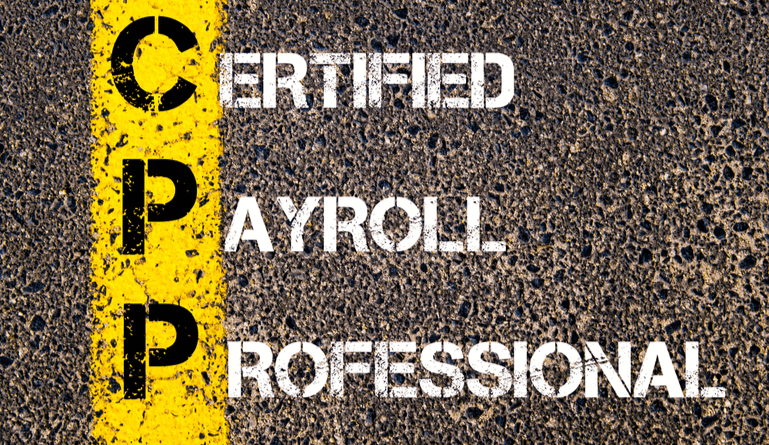Modern payroll practices can be complicated between changing tax codes and varying employment laws. It’s a crucial step of business to get right, however, as it not only affects your company’s finances, handled incorrectly it can lead to greater legal and financial risk as well as a damaged corporate reputation and staff turnover.
One way that businesses have chosen to deal with the challenges of HR and payroll is to contract with certified payroll professionals.
What does a certified payroll professional do?
Hiring a payroll specialist can be a huge benefit for your business, helping to support a healthier corporate culture. Outsourcing your payroll functions frees up a lot of your HR time and helps to keep your business risk reduced through better compliance. Some of these responsibilities include:
- Calculating salaries and deductions
- Helping to manage the benefits for each employee
- Keeping track of vacations, sick days, and other leaves of absence
- Calculate taxes
- Preparing and compiling tax and financial statements for the company
- Training and managing any new payroll employees
Having these responsibilities covered and in the capable hands of certified professionals can be a huge part of financial peace of mind.
What are the benefits of a certified payroll specialist?
1. Better quality assurance
Payroll is a process with very little tolerance for error. It’s important that it’s accurate, regular, and reliable; even minor missteps or mistakes in payroll can have significant consequences for the business. Those who have a CPP certification have demonstrated the knowledge and ability to handle all parts of the complicated process and can deal with the intricacies, as well as any problems that may arise. This level of assurance is worth paying for too many organizations.
2. Standardization
Sometimes hiring payroll professionals to handle payroll inhouse can lead to a disconnect between expectations and reality. For instance, some payroll employees have only worked in small companies with no interstate payments or regulations to worry about. When working with a certified payroll specialist, you know that the knowledge base for everyone with the certification is the same and that they have the tools and resources to handle whatever your business needs are.
3. Improved employee engagement
Employees who know that their paychecks or direct deposit are going to arrive regularly, accurately, and on time are more likely to stay with a company and be engaged in their work. Pay is a huge reason that employees engage meaningful with their work and establishing a process that is regular and reliable can lead to greater employee satisfaction and retention.
4. Cost savings
It is often more cost-effective for a business to contract with a 3rd-party payroll provider than to keep a payroll employee on staff and paying an additional salary and benefits. You can also get cost savings in the form of reduced compliance risk and reduced employee turnover.
Ultimately, hiring a certified payroll professional means investing in the health and longevity of your business and is a commitment to the financial security and livelihood of your employees.
What do you need to look for in a certified payroll professional?
If you’re looking to hire a payroll pro, one of the most important things to look for is some kind of recognized accreditation that notes that the specialist has a payroll certification. American Payroll notes there are two kinds of recognized certifications, saying, “The American Payroll Association (APA) offers two types of certification: the Fundamental Payroll Certification (FPC) and the Certified Payroll Professional (CPP). The FPC is for entry-level staff, and the coursework for this certification gives a thorough introduction to this field. FPC holders are ideal candidates as payroll clerks or other mid- to entry-level positions… advanced certification requires previous experience in the field and in-depth knowledge of core concepts such as employment taxes, employee benefits and the Fair Labor Standards Act (FLSA).”
Other criteria to look for include familiarity with common payroll software solutions like ADP, Kronos, and Zenefits. If there’s an overlap with accounting functionality, familiarity with software like QuickBooks or Quicken. Additionally, it’s important for some businesses to collect reviews and get testimonials from other clients your certified payroll professional has worked with so they have a better sense of trust and competence in who’s going to be handling sensitive employee payroll information.
Does your business need a certified payroll professional? Outsourcing your payroll process to someone with a CPP certification is a good idea for many start-ups, small businesses, and entrepreneurs, but is also a smart solution for businesses who want to focus more of their efforts on attracting and retaining talent. If you have in-house payroll professionals already on staff, you may want to offer them the chance to earn their certification and be reimbursed by the company as a show of commitment to your employees and your payroll process.




